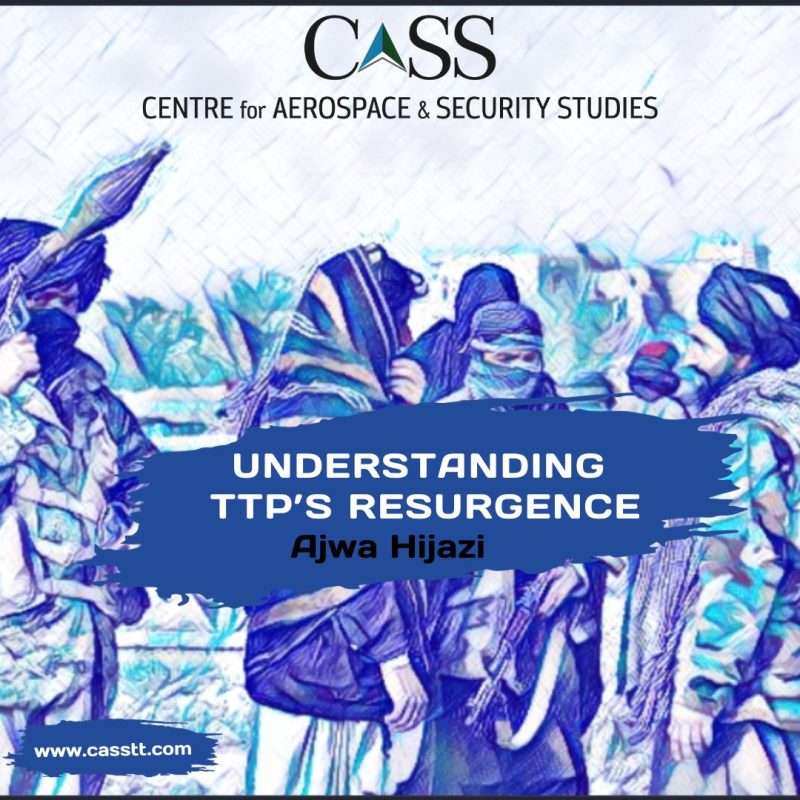The first nine months of 2023 depict an impoverished internal security landscape inhabited by the revival of terrorism in Pakistan. According to a recent report by the Islamabad-based Centre for Research and Security Studies (CRSS), 700 security personnel and civilians lost their lives in various militant attacks from January to September 2023, which is a 19% increase in the number of fatalities as compared to 2022. Moreover, the data compiled by the Pakistan Institute for Conflict and Security Studies (PICSS) shows that August alone accounted for the highest number of military attacks in a single month since November 2014. Although the number of attacks was reduced in September by 34% compared to August, the number of casualties increased to 21%. These glaring figures reflect the unfortunate reality of the revival of terrorism in a country that has paid a hefty human and material cost due to it over the years.
The main actor behind most of the attacks this year has been Tehreek-i-Taliban Pakistan (TTP) and its various splinter groups. Over the last two years, TTP has gradually manifested its return through increased militant activities in Pakistan. While adopting a centralised organisational structure, the group has expanded its network in the country. In June this year, TTP announced the establishment of new ‘wilayat’(administrative units) in Balochistan and Punjab, after which the total count of its administrative units stands at 12. These expansions reflect the groups’ strategy to proliferate operations beyond their traditional strongholds, i.e., erstwhile FATA, Pashtun-dominated districts of Balochistan, and Khyber Pakhtunkhwa. Similarly, over the past two years, the merger and joining of various extremist groups with TTP indicate its goal to attain more human resources to bolster its insurgency against the state of Pakistan.
Pakistan has been facing the TTP’s insurgency since the group’s formation in 2007. The group aimed to impose their interpretation of sharia in the country. Through Operations Zarb–e–Azb and Radd-ul-Fasad, the security forces successfully diminished its onslaught. Unfortunately, while Pakistan took vigorous kinetic action against the proscribed group, i.e., eliminating several TTP leaders, there was a lack of follow-up measures to nip extremism in the bud. In the same vein, the inconsistent counterterrorism approach of successive governments, along with the inaction of the National Counter Terrorism Authority (NACTA) in the previous years, provided room for TTP to keep its existence intact despite being fragile.
Another factor that stimulated TTP’s resurgence in Pakistan was the return of the Afghan Taliban as the de facto rulers in Kabul in August 2021. TTP is ideologically aligned with the group but maintains its operations, separately. Pakistan’s apprehensions about TTP getting a conducive environment in Afghanistan to conduct militancy in Pakistan have not been mere speculations. A UNSC report also endorsed Pakistan’s concern that the Taliban’s return emboldened TTP. The major brunt of resurgent violence by the TTP has been faced by two provinces that border Afghanistan – the north-western province of Khyber Pakhtunkhwa and Balochistan.
Pakistan has been cajoling the Afghan Taliban authorities to take action against TTP’s safe havens in Afghanistan that facilitate cross-border militancy. However, the constant ‘liberty of action’ enjoyed by TTP in Afghanistan indicates that the leadership in Kabul has been unable to rein in the group, even though the former has maintained that they have not allowed any militant group to use their territory to launch operations against any neighbouring state.
While cross-border safe havens have contributed to the current stance of the TTP, it is essential to consider that the lack of a consistent state response over the years may also have inadvertently facilitated the TTP’s resurgence. Persistent challenges in the political, social, and economic arenas have created an environment where groups like the TTP find fertile ground. Addressing these underlying issues is crucial, as they can otherwise lead some individuals to align with militant organisations as a means of voicing their grievances.
Recognising these challenges, Pakistan has recently initiated a series of measures in its counterterrorism efforts. The accelerated performance of apex committees to stop the facilitation of terrorism, NACTA’s decision to start capacity-building reforms in the provincial counterterrorism departments, and the recent deadline for illegal immigrants reflect the state’s current proactive position against militancy. However, the effectiveness of these decisions would depend on the extent to which they are coherently and impartially implemented.
To tackle the growing menace of the TTP, Pakistan needs to devise a multifaceted approach that tackles internal and external factors responsible for enhancing the group’s lethality. There is no denying that the government needs to vehemently ask the Afghan authorities not to let TTP disseminate militancy in Pakistan from its soil. However, it would be naïve to base Pakistan’s counterterrorism strategy solely on the actions of the Afghan interim government. For a robust response to the expansion and operation of TTP, Pakistan must prioritise internal reforms. This includes, among other things, strengthening its intelligence capabilities to pre-empt militant threats and enhancing community-based programmes that address the root causes of extremism. By addressing internal vulnerabilities, Pakistan can build a more resilient state from within.
Ajwa Hijazi is a Research Assistant at the Centre for Aerospace & Security Studies (CASS), Islamabad, Pakistan. She can be reached at cass.thinkers@casstt.com
Design Credit: Mysha Dua Salman




